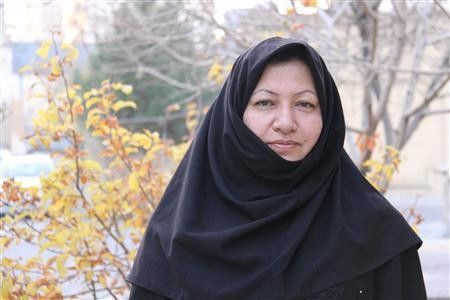Iran on Sakineh Mohammadi Ashtiani: We Will Hang Her Instead of Stoning Her to Death

Iran officials have indicated that Sakineh Mohammadi Ashtiani, a 44-year-old woman who was sentenced to death by stoning for adultery, could die by hanging instead.
Ashtiani was convicted in 2006 for an illicit relationship outside of marriage and was sentenced to death by stoning. However, the execution was delayed after global protests. She has been held in prison ever since.
Ashtiani's case went public in last July when her children made an appeal to the international community for help to stop their mother's imminent execution. Their plight got responses from hundreds of human rights activists within days. World leaders also joined an international campaign for Ashtiani's release.
But multiple media reports are now stating that Iran's judicial authorities are pursuing death by hanging for Ashtiani.
Fox News reported that head judiciary Malek Ajdar Sharifi on Sunday said the prison doesn't have the necessary facilities to follow through with Ashtiani's stoning and therefore, are considering hanging her as an alternative.
Sharifi reportedly told the Isna News Agency that there is an investigation being done in order to see if it is legally and religiously possible to execute Ashtiani by hanging, according to Fox.
As soon as the result of the investigation is obtained, we will carry out the sentence, Sharifi told Isna news agency, as reported by the Guardian.
Last year, President Mahmoud Ahmadinejad has said that Ashtiani wasn't given a sentence of stoning and Ali Khamenei, a senior adviser to Iran's supreme leader, had indicated that her life could be spared.
Mina Ahadi, a member of the International Committee against Stoning, told the Guardian that Sharifi's comments showed that the international pressure placed on Iran was successful. However, Ahadi warned that Ashtiani's execution was still a possibility.
Iran kept quiet about Sakineh for almost a year and we had little information about her case and now ... they have suddenly stepped forward to say she could be hanged, she said. I believe they are testing the water.
Now Sharifi comments have reportedly reignited efforts to get freedom for the 44-year-old mother.
Iran's most recent attempt to escape another international embarrassment by converting the sentence to death by hanging still results in Iran violating its obligations under international law, Tiffany Barrans of The American Center for Law and Justice, a Washington-based civil rights watchdog group calling for the unconditional release of Ashtiani, told Fox News.
The regime's post hoc attempts to justify Ashtiani's death sentence by digging up old criminal charges should be seen as nothing less than an attempt to hide its flagrant disregard for human rights, Barrans added. Ashtiani's previous charge and sentence for her alleged involvement with her husband's murder, a sentence which did not involve death, is suspect at best.
The Guardian reported NGO Iran Human Rights have said that seven people have been stoned to death in Iran since 2006 and at least 14 are now facing death by stoning.
The Guardian's report also noted that Mahmood Amiry-Moghaddam, a spokesperson for the NGO Iran Human Rights, has said that Iran has a history of changing stoning sentences to hanging when faced with pressure.
One such examples is that of Abdollah Farivar, a music teacher who was sentenced to death by stoning for adultery but was instead hanged in 2009, he said, adding that changing stoning to hanging is illegal under Iranian law.
Last November, Secretary of State Hillary Rodham Clinton said she was deeply troubled by reports that authorities in Iran are finalizing plans to execute Ashtiani.
Iran's leaders have failed once again to protect the fundamental rights of their own citizens, particularly women, Clinton said. Ms. Ashtiani's case has not proceeded with the transparency and due process guaranteed under Iranian law, and we are concerned about reports of coerced confessions and other mistreatment. The United States joins the international community in calling for Iran to immediately halt any plans for Ms. Ashtiani's execution and to handle her case with utmost transparency.
The State Department has also asked that Iran conduct Ashtiani's case with the transparency and due process written in Iran's own constitution as well as in the International Convention on Civil and Political Rights, to which Iran is a signatory, according to Fox News.
Fox News also reported that Article 7 of the ICCPR convention states that no one shall be subjected to torture or to cruel, inhuman or degrading treatment or punishment and that Article 6ix states that a death sentence should only be imposed for the most serious of crimes.
Adultery, by all international standards, does not qualify as one of the 'most serious crimes,' Barrans told Fox News.
The Guardian reported that Amnesty International has said that Ashtiani was given a 10-year prison term for the murder of her husband at her trial, but that her lawyer has said that term of years has since been reduced to five for complicity in the crime.
Many activists believe Ashtiani's convictions resulted from confessions made under duress, the Guardian reported, noting that at least 600 people have been executed in Iran in 2011 as of the end of November.
© Copyright IBTimes 2024. All rights reserved.





















